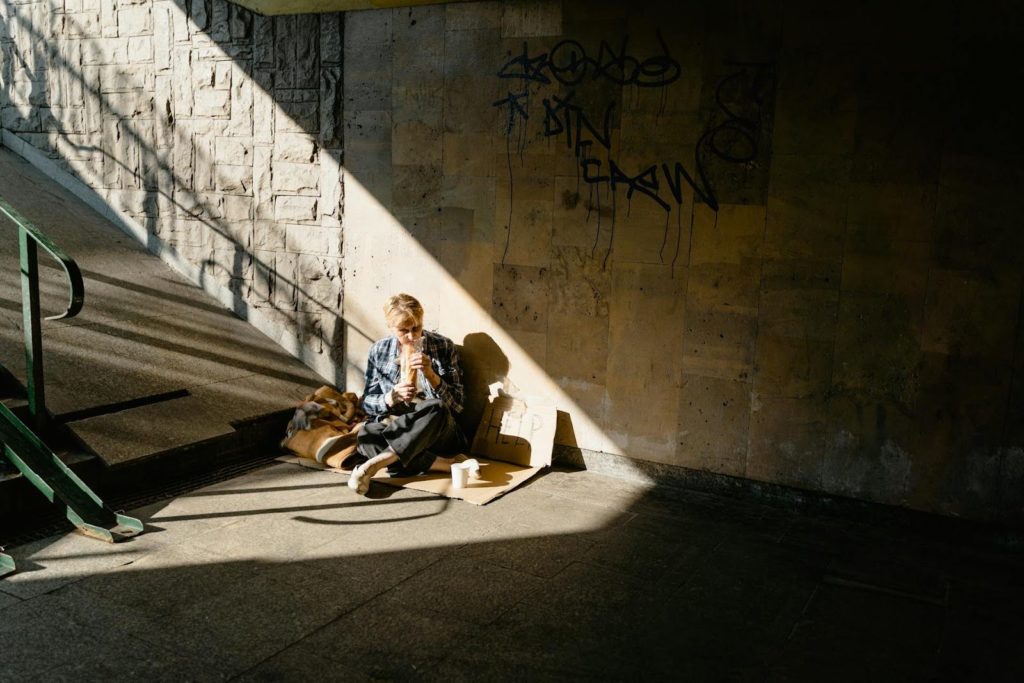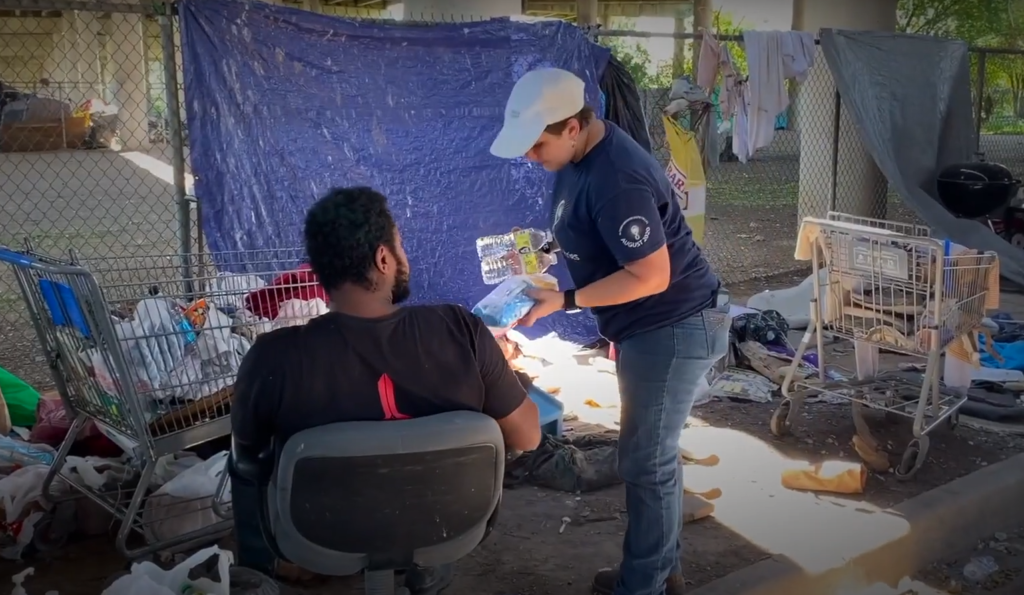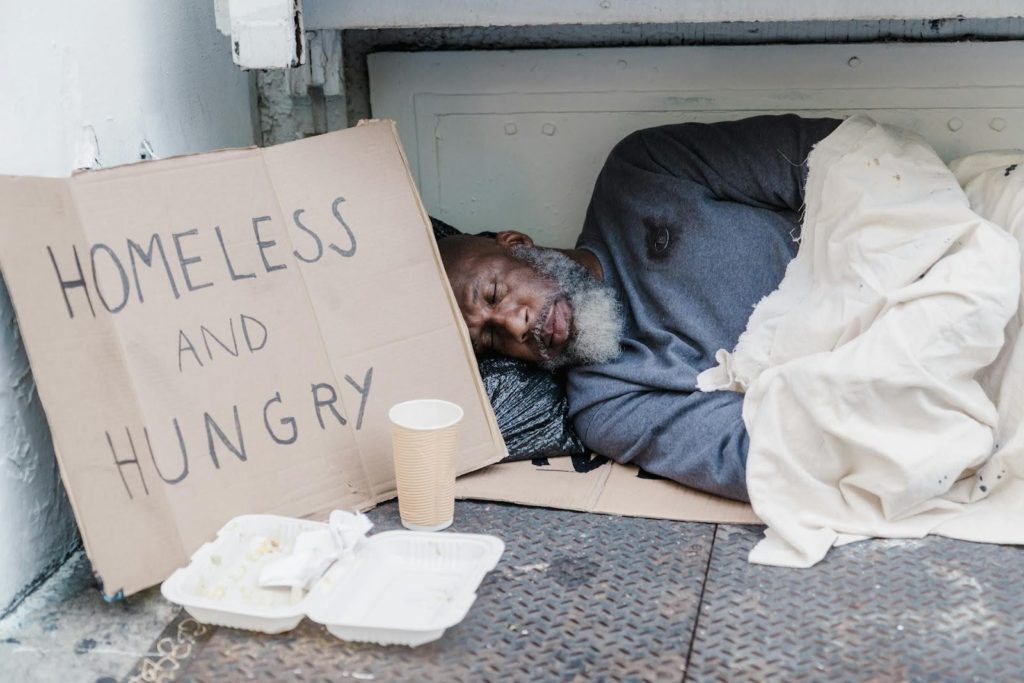Some reports indicate a significant reduction in homelessness in Dallas by nearly 25%. It’s a promising development, hinting at efforts that are starting to bear fruit. Yet, let’s not get too comfortable with the stats. Despite this positive trend, around 3,000 individuals still find themselves without shelter. That’s 3,000 lives in turmoil, facing the harsh realities of the streets every single day. Bring the Light Ministries is not here to pat anyone on the back for a job half-done. We emphasize the need to focus on the vulnerable who still lack shelter and support. Yes, from 4,000 homeless to 3,000 is progress, but it’s nowhere near the finish line. It’s a reminder that our work isn’t over until everyone has a place to call home. While we acknowledge the drop in numbers, we zero in on those still falling through the cracks – those who need our help the most.
“We won’t rest until every soul is accounted for, housed, and supported.”
Economic and Housing Issues
The economic landscape is a minefield when it comes to homelessness. Christine Crossley, director of the Dallas Office of Homeless Solutions, nails it when she talks about rising rents and inflation playing a big role. Prices go up, wages barely move, and people get squeezed out of their homes. It’s basic math. If you can’t afford the roof over your head, you end up on the street. Simple as that.
Housing Forward CEO Sarah Kahn, points out the lack of affordable housing, worsened by so-called “economic growth.” Sure, the city looks prosperous, but who benefits? Definitely not the people struggling to make rent. In an economy that favors the wealthy, everyone else fights for scraps. Affordable housing isn’t just lacking; it’s becoming a fairy tale for many.
We get trapped in debates over whether homelessness is driven by economic instability, policy failures or the rise in drug and alcohol addiction . But let’s be real—it’s all three. Policies that don’t support affordable housing and living wages compound economic issues. Combine rising rents with out-of-reach housing, and you have a recipe for disaster. Let’s not even get into the drastic rise in drug and alcohol addiction driven by the opioid crisis and situational depression! COVID-19 didn’t help either. It threw a wrench into the already fragile lives of many, pushing them right over the edge into homelessness.
We saw job losses and business closures during the pandemic. The economic instability it caused is like nothing we’ve seen in recent history. People lost their income and couldn’t pay their rent; landlords, facing their own bills, can’t afford leniency. Where does that leave us? More people on the streets, plain and simple.
Let’s not gloss over this: Dallas is facing a housing affordability crisis. And while homelessness may have decreased by that notable 25%, the core issues remain unresolved. For every success story, there are countless others still wrestling with the basics of survival. Affordable housing isn’t just a pipe dream; it’s a critical need, now more than ever.
In tackling homelessness, ignoring the core economic factors is a massive mistake. Rising rents, inflation, and a lack of affordable housing create a vicious cycle that’s tough to break. We’re not just talking about statistics here. We’re talking about real lives affected by these issues. You can’t simply sweep economic instability under the rug and hope the problem goes away.

Policy and Health Factors
Addressing homelessness isn’t just about economics; it’s also about policies and health factors that often get sidelined. Author, journalist, and policy expert Michael Shellenberger puts a spotlight on policies that, in his view, incentivize homelessness. Let’s call it what it is—a systemic failure. Despite good intentions, some policies keep people stuck in a cycle of dependency rather than offering a way out. They provide just enough to survive but not enough to live a life most of us do, much less enough to thrive. This creates a situation where escaping homelessness is incredibly difficult.
Dr. Robert Marbut, the creator of the Haven for Hope model in San Antonio, adds another layer by pointing out the need to tackle mental health and substance abuse head-on. This isn’t just a side issue. A significant portion of the homeless population grapples with these challenges daily. Ignoring it is not an option if we’re serious about solving homelessness. You can’t put a Band-Aid on a broken leg and hope it heals. Similarly, providing shelter without addressing mental health and substance abuse is not a real solution.
The opioid epidemic is a dark cloud hanging over this issue. It’s a key driver that has pushed many into homelessness. People addicted to opioids often lose jobs, homes, and relationships, spiralling into deeper and deeper troubles. It’s not enough to just get people off the streets; you have to address the root causes that led them there in the first place. And let’s be blunt: substance abuse treatment isn’t accessible enough for those who need it most. We need comprehensive, long-term strategies that go beyond temporary fixes.
The Haven for Hope model is a comprehensive approach that addresses multiple facets of homelessness. It provides more than just a bed; it offers mental health services, substance abuse treatment, job training, and more. This is the blueprint for what effective homelessness intervention should look like. It’s treating the whole person, not just the symptoms of being homeless. We need more models like this, focusing on holistic rehabilitation. Oh hold on, that’s exactly what Bring The Light Ministries is doing in developing and implementing the 2.5 year program at The Joshua Center here in Dallas.
But let’s not kid ourselves. Implementing these solutions requires political will and public support. Substance abuse and mental health are often stigmatized, making it easier for policymakers to ignore them. Yet, turning a blind eye isn’t going to solve the problem. We need resources allocated to comprehensive care models that address these underlying issues.
Focusing only on economic solutions without addressing mental health and substance abuse is like trying to fill a bucket with a hole in it. Your efforts amount to nothing if you don’t solve the core issues causing leaks in the first place.
Tackling homelessness means tackling it from all angles—economic, policy, and health. Ignoring any of these factors ensures we’re not addressing the issue head-on. It’s time for a holistic approach to reduce and eliminate homelessness for good. Substance abuse, mental health, and policy reform aren’t optional; they are essential in the fight against homelessness.
Bring the Light Ministries’ Focus
Bring the Light Ministries hits the ground running regarding addressing homelessness. Our core mission is to focus on overlooked populations who often slip through the cracks: seniors, youth, and minorities. These vulnerable populations face unique challenges and need tailored support.
Take our Joshua Center Initiative, for instance. It’s a comprehensive, two-and-a-half-year program of life skills training, vocational training, counselling, 12-step recovery programs, and job placement support that creates a reintegration facility designed to offer more than just temporary relief. Studies show that typical programs show little long-term success, while transformational programs lasting over two years have an 80-90% success rate. This isn’t about giving a handout but empowering people to reclaim their lives.
Our nutrition and community engagement programs are another cornerstone of our work. Feeding programs ensure that nobody in our reach goes hungry. We’re not stopping there. Our future plans include specialized support for veterans and survivors of sex trafficking. These communities face severe obstacles, and we’re meeting those needs.

Advocacy for structural change is a big part of our work. We work with local governments and nonprofit organizations to push for policies that address homelessness at its roots. This collaboration is crucial for long-term change. Providing immediate support is insufficient; we must also tackle systemic issues.
Our ongoing commitment is evident in our daily outreach efforts in Dallas. This is ground-level work—meeting people where they are, understanding their needs, and offering targeted assistance. Whether delivering food, offering counseling, or simply providing a listening ear, our team is out there every day, making a difference.
At Bring the Light Ministries, we understand that homelessness isn’t just about lacking shelter. It’s about the social, economic, and health factors contributing to someone ending up on the streets. Our approach is holistic, designed to address every aspect of an individual’s life. This includes emotional support, vocational training, and bridging them to the community.
We are relentless in our vision to eradicate homelessness and suffering. This isn’t just a mission statement—it’s a daily reality for us. Every program and every initiative is a step toward a future where no one has to live without a home. We’re not interested in short-term fixes or band-aid solutions. We’re here for the long haul, committed to making lasting changes.
Vulnerable populations need our focus, and that’s exactly where we’re putting our energies. If we want to end homelessness, we can’t just target the easy cases. We have to dig deep, get our hands dirty, and work with those who are hardest to reach. That’s the commitment Bring the Light Ministries brings to the table. We’re not just talking about change; we’re making it happen.
A Call to Keep Pushing Forward
Yes, Dallas has made progress by reducing homelessness by 25%, but the job is far from done. There are still 3,000 people without a roof over their heads. Celebrate the progress, but don’t lose sight of those still struggling. We need relentless effort to provide immediate support and long-term solutions.
Bring the Light Ministries is all-in—focused on the vulnerable and overlooked. Our daily outreach, comprehensive programs, and advocacy for structural change are steps toward eradicating homelessness. This fight isn’t over until everyone has a place to call home. We need your commitment, action, and voice to keep pushing forward. Together, we can make homelessness a thing of the past.


